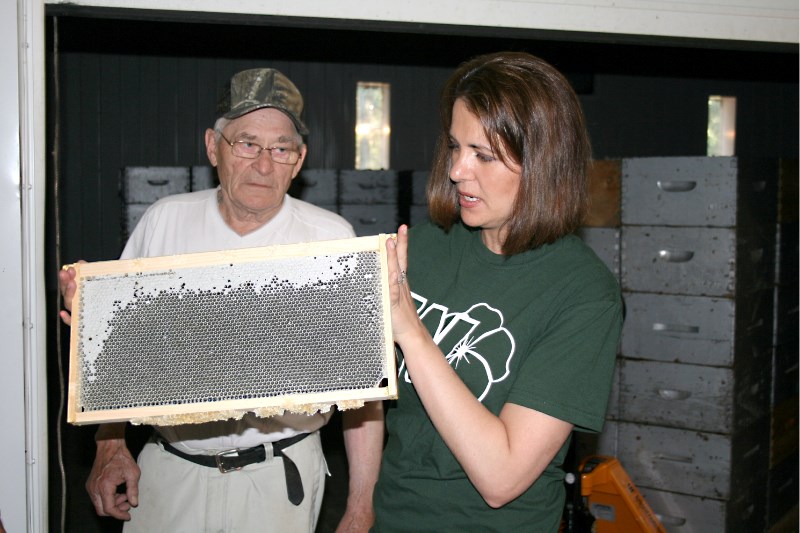The Wildrose Party released its agriculture policy while on tour across the province in Coaldale and spent time explaining its positions while in St. Paul.
The party's agriculture policy will target red tape and reduce the “regulatory burden" on producers to allow them to keep more of what they earn, leader Danielle Smith told the Journal last Tuesday.
The regulatory burden on beef producers works out to $85 per head when compared to the U.S., she said. In every sector, the same kind of “additional regulatory load" adds tens or hundreds of dollars in costs, she said.
“We have to identify smart regulations," she said adding that regulations should be streamlined in other areas so as to not overburden producers.
“You have to have transparent rules. They have to be easily understood. They can't be constantly changing."
Smith described the burden of forms, paperwork, permits, licences and reporting as “crushing" the province's entrepreneurs in the social and private sectors. Smith said she favours an approach used in Nova Scotia, which measured the amount of paperwork and sought to reduce it by 20 per cent.
“We have to clear away some of those regulatory burdens so they can put more money in their pockets." The Wildrose would conduct an assessment provincially and work with federal counterparts to “reduce that overall load so that we can make our producers profitable again."
A Wildrose government would also reform crop insurance and disaster relief programs to make them easy to understand and give the support where and when it's needed, she said.
Proposed policy changes
With disaster relief, producers are frustrated that everybody receives relief whether they need it or not, she said.
“You want people who are genuinely experiencing the disaster to get the support that they need. If you water down the support among too many people, then the ones that are completely wiped out don't get enough support and others that don't need it at all get too much."
Another part of the party's recently released agriculture policy would allow producers to spread income between high earning and low earning years.
Smith pointed to the Nor-Bees Honey Farm near Mallaig she visited on Aug. 9, which usually experiences a bumper crop every ten years.
Owner Norbert Christensen said he hasn't had a bumper crop since 1998.
He's getting stung not only physically, but also financially, he said. Whether it is too much rain like this year to too little in other years, uncontrollable factors have prevented Christensen from seeing his bumper crop.
Smith also said beef producers should have had their best year when BSE crisis came, “and then we got clobbered."
Now that commodity prices are recovering and it appears like there will be some good years, “rather than have these guys walloped with a high tax bill, allow them to put their money into something like a RSP vehicle and they only have to pay taxes as they draw the money out and use it as income. It's called an income averaging trust account," she said, explaining the party's new policy recommended by its agriculture task force.
Smith thinks Alberta's farmers can find niche markets and value-added products to allow agriculture to continue to be an important part of the economy.
Producers she's spoken with have pride in their family enterprises and want government to get out of the way so they can be competitive and find markets, she added.
“Allowing an income averaging trust and allowing the regulatory burden to be eased, I think that those will go a long way towards helping our producers out."
The province also needs to work with the federal government to put agriculture on the agenda in international trade negotiations, she added.
Smith said the Canadian Wheat Board (CWB) plebiscite showed producers want a marketing choice and that she is disappointed CWB directors seem to tell supporters “it's all or nothing," that they have either a monopoly or a market.
“We can have a dual market. You can have the Canadian Wheat Board continue to be a strong player and an aggregator of grain farmers' product to be able to get the best price."
Large producers should be allowed to market their product as they do with a variety of other products, while others that want the security of the board can have that too, she said.
“There's a way to have a double win here, and that's what we support the federal government on."



